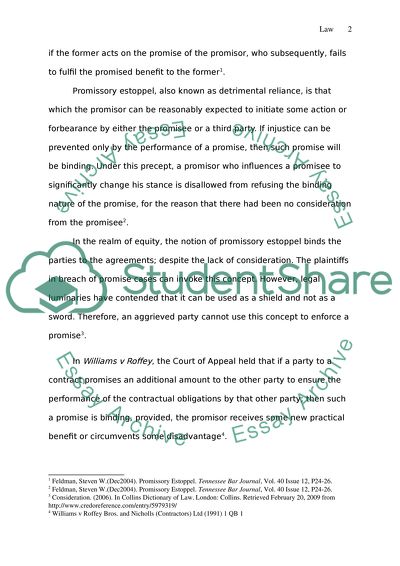Cite this document
(“Promissory estoppel Article Example | Topics and Well Written Essays - 2750 words”, n.d.)
Retrieved from https://studentshare.org/law/1526552-promissory-estoppel
Retrieved from https://studentshare.org/law/1526552-promissory-estoppel
(Promissory Estoppel Article Example | Topics and Well Written Essays - 2750 Words)
https://studentshare.org/law/1526552-promissory-estoppel.
https://studentshare.org/law/1526552-promissory-estoppel.
“Promissory Estoppel Article Example | Topics and Well Written Essays - 2750 Words”, n.d. https://studentshare.org/law/1526552-promissory-estoppel.


